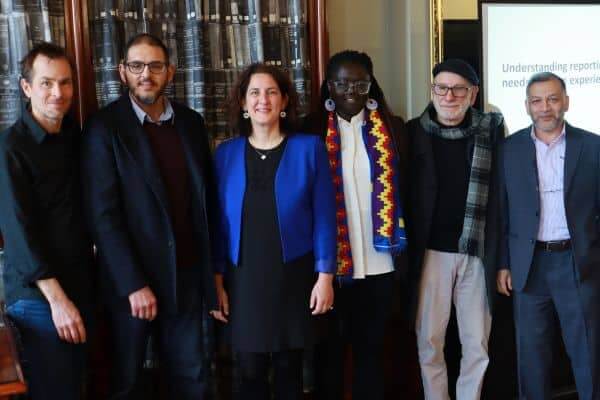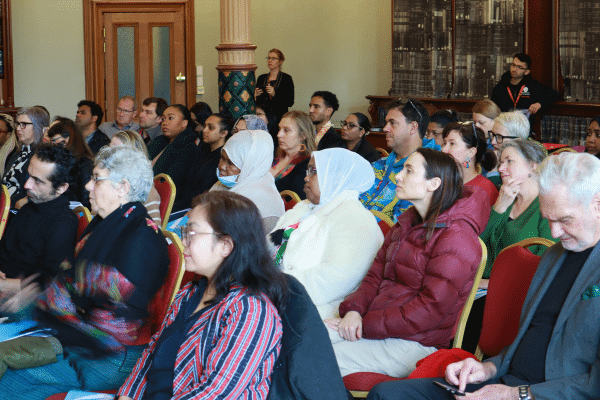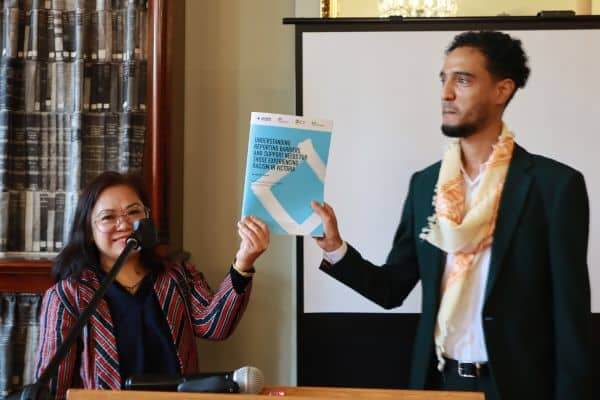A new anti-racism research report launched on Tuesday in Melbourne has found the majority of racist incidents experienced in Victoria go unreported.
Surveying more than 700 CALD Victorians, of which 10.5 percent identified as being born in India, the report found that whilst 75 percent of respondents had experienced racism, only 16 percent had formally reported it.
When giving reasons as to why they hadn’t made a formal report, 91 percent of respondents said they felt like nothing would change as a result. Other reasons included finding the process too difficult (83%), concern they wouldn’t be taken seriously (83%), and fear of negative consequences (76%).
“There is no immediate accountability. And all the energy and effort you are exerting, you tell yourself, you are not going to get anywhere with it. Especially if you have tried in the past and you have been left …half-way, and nothing has been done about it, then you will never do anything about it ever again,” said one participant of the study.
Titled ‘Understanding reporting barriers and support needs for those experiencing racism in Victoria’, the research was led by Victoria University, in collaboration with the Ethnic Communities Council of Victoria (ECCV), Islamic Council of Victoria (ICV) and VicHealth.

Mario Peucker, Associate Professor of the Institute for Sustainable Industries and Liveable Cities at Victoria University, says the study aims to improve anti-racism support across the state.
“Our report captures the experiences of hundreds of people who continue to be negatively impacted by racism, while offering proactive ways to encourage people to speak out and ultimately improve anti-racism support,” he said.
The report makes clear the need for enhanced reporting initiatives; of those who reported their experiences of racism, 77.5 percent were dissatisfied with the outcome.
As noted in the study, ‘reporting racism can often be described as a high-input but low-outcome process’, and speaking out can be ‘painful, distressing and even re-traumatising, not least due to the lack of safe spaces for such conversations’.
While most knew how to report to Victoria Police, less than 30 percent believed there were enough adequate reporting opportunities, and few knew how to access other support or reporting services.
ECCV Chairperson Eddie Micallef hopes the report can bring about a stronger, more empowering setup for CALD communities to speak out about racism.
“Our migrant and refugee communities hold the key to shaping more effective anti-racism policies and strategies,” he said.
“By better understanding what our diverse communities need, we can empower them to call out racism, report it and take the steps to seek support.”
The need for improved anti-racism strategies is especially pertinent for South Asian communities; after those of African background (91.1%), racist experiences were found to be most prevalent amongst South Asians, with almost 82 percent of Indian or Sri Lankan participants stating they had experienced racism.

Many participants also shared experiences of not only racism, but intra-community discrimination based on factors such as caste, colour or religion.
“It’s quite normal for those from a higher caste to look down on people from so-called lower castes,” noted one South Asian participant.
“And that’s carried over here to Australia, and it can translate into workplace discrimination here too. And even more, this affects how some see and treat other migrant communities that are less educated, not so good English, even Indigenous communities.”
The highest instances of racism occurred in the workplace (57%), with shopping centres (49.5%), public transport (37.8%) and other public places (37.3) not far behind.
“I experienced bad looks from others. When seeking clarification and information, they looked at my like “why do you ask me this?”. But how should I know, I was new to the country and new to everything,” said one respondent, a South Asian woman, of her pharmacy workplace.
The report also suggests immediate actions to address the shortcomings of current reporting structures, such as increasing racial literacy in workplaces, simplifying the reporting process, and funding local anti-racism hubs. Community led advocacy was also a popular response, with 70.3 percent of respondents stating they’d be more likely to report if services were culturally sensitive.
Equally, emotional reassurance was the most sought-after support after a racist incident, with 82.3 percent expressing the need to be listened to. Mario Peucker hopes the report’s findings will help organisations and government hear CALD community voices.
“Listening to and centering community voices is crucial for any advancement in reducing racism,” he said.
READ ALSO: Scanlon Institute report: Indian-Australians feel strong belonging





